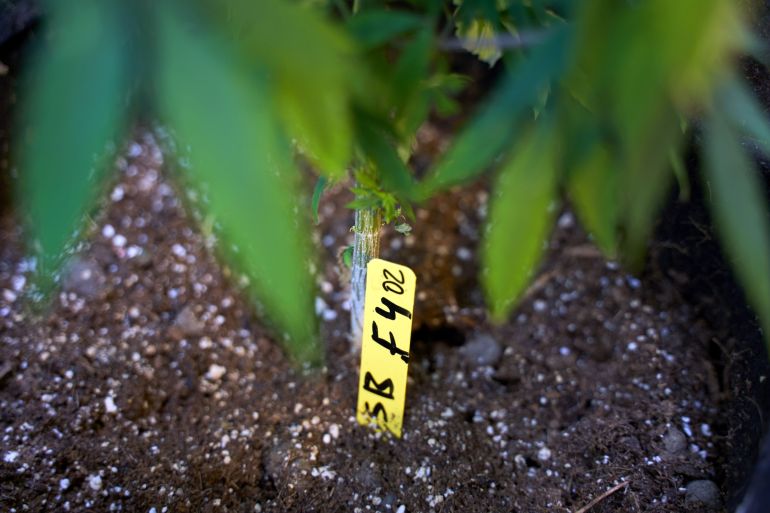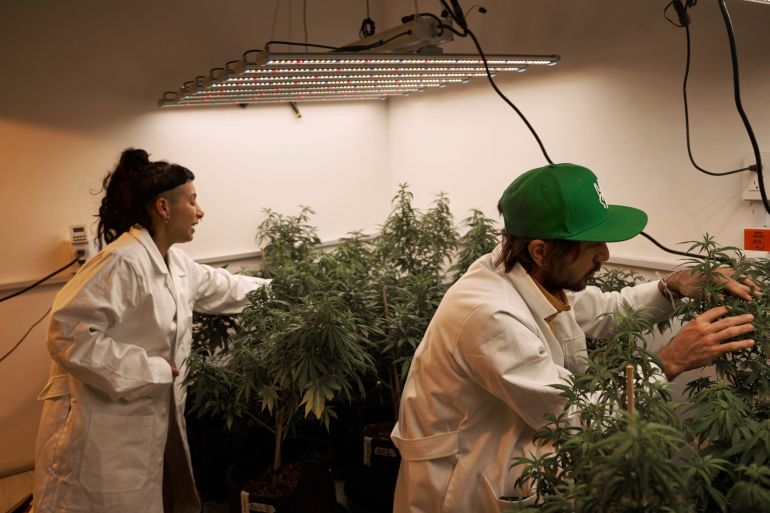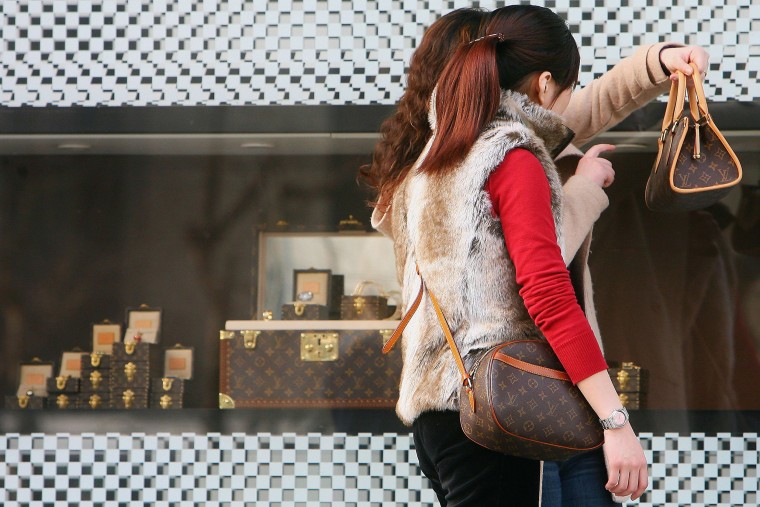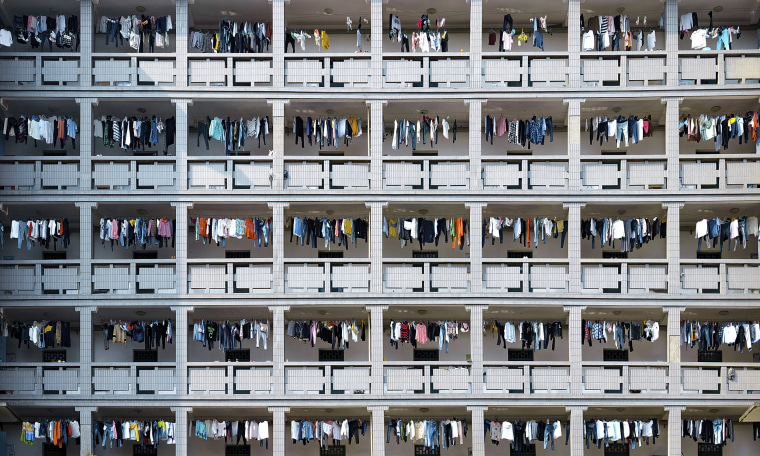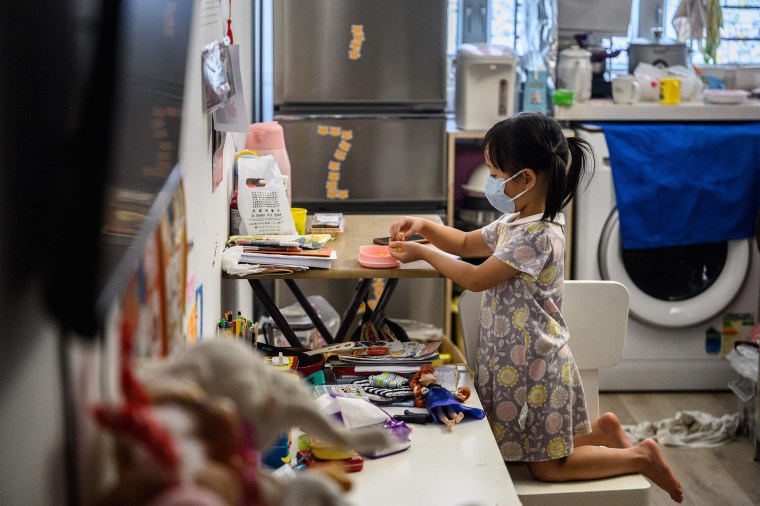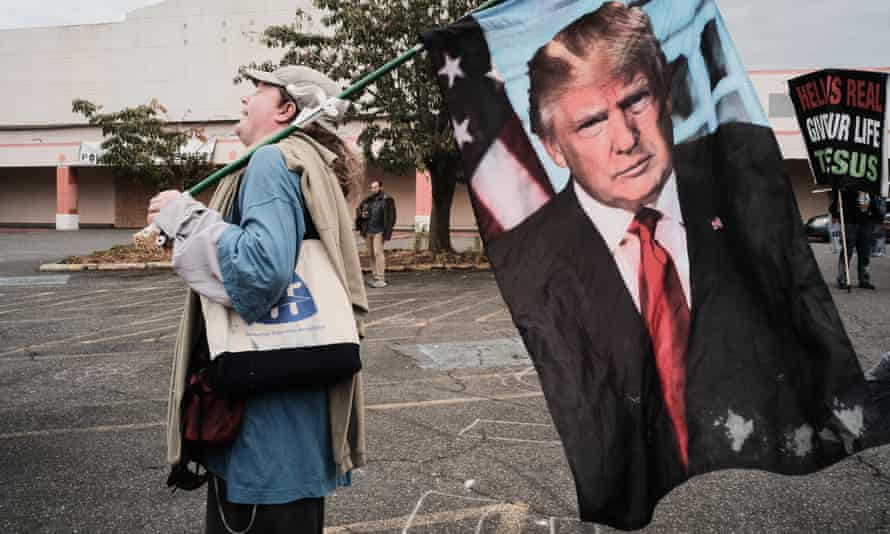Issued on: 06/09/2021 -

Lod (Israel) (AFP)
Two Israeli men who lost close relatives in sectarian mob violence, one Jewish and one Arab, have bonded in grief -- but their contrasting pursuits of justice highlight a deep divide.
Both are mourning loved ones who were killed in the mixed city of Lod during the spasm of inter-communal unrest that tore through Israel during the latest Gaza war.
Malek Hassuna, who is Arab, said his 31-year-old son Mussa, a scrap metal trader, was shot dead by Jewish vigilantes on May 10, leaving behind a wife and three children.
Effi Yehoshua, who is Jewish, said his 56-year-old-brother Yigal, an electrician, was killed a day later when a rain of stones hit his car. He was survived by his wife and two children.
Seven Arab suspects have been indicted in Yigal's killing, police said.
Four Jewish suspects were arrested in Mussa's death, but then released, with no indictments filed.
"This is not justice," said Hassuna, 62, who recounted how he was mourning his son when he heard that Yigal, his work colleague, had died.

"Yigal was my friend," Hassuna told AFP.
He said he visited Yigal's grieving family and told them, "your pain is my pain".
The two bereaved men began exchanging messages and voice notes.
Months later, sitting on Hassuna's couch, Yehoshua, 58, told AFP: "Every time the wound opens, it hurts. It tries to heal and it opens again, and for Malek, the wound doesn't heal either."
- Finding the truth -
Both men say their loved ones moved easily between the Jewish and Arab communities of Lod, a working-class city of around 80,000 people.
About a third of residents are Arab citizens of Israel, the descendants of Palestinians who remained after Israel's 1948 founding.

For years, Jews and Arabs shared Lod, though Arab residents complained of unequal treatment in housing and land.
The calm was shattered in May when unprecedented violence by Arab rioters and Jewish vigilantes left synagogues smouldering, Muslim gravestones smashed, and cars charred along the city's roads.
Tensions had flared nationwide after Israeli police stormed Jerusalem's Al-Aqsa Mosque in response to worshippers throwing rocks and explosives.
The fighting exploded when Gaza's Islamist rulers Hamas fired rockets and Israel pounded the blockaded enclave with intense airstrikes.
"Lod never had anything like this in 70 years," Yehoshua said.
The Arab suspects indicted over Yigal's death included two West Bank residents and five Israeli citizens, police said.
According to the charges, the defendants hurled rocks through Yigal's car windows, cracking his skull and causing fatal brain damage.
Effi Yehoshua said he attends every court hearing for his brother's alleged killers.
"I believe in the legal system, believe in the security forces, that they will arrest these people and give them what they deserve," he said.
In the case of Mussa's shooting, police questioned four Jewish suspects but later released them.
"Israel makes a distinction, that it's very normal for an Arab to die in cold blood," Hassuna said.
- Wave of violence -
Israeli police told AFP they arrested 154 people, including 120 Arabs, connected to "disturbances" in Lod.

Police said officers investigate "every instance of violence and murder ... without any tie to the background of the suspect or victim in a crime".
However, Jafar Farah, director of the Mossawa Center rights group for Palestinian citizens of Israel, told AFP that "there is selective implementation of law enforcement when it comes to Arab citizens".
Farah's organisation said police had arrested more than 2,300 Arab citizens since May, compared to 180 Jewish citizens.
The justice ministry did not confirm the arrest figures, but said it issued 515 indictments for various offences, with Jewish defendants comprising about 13 percent.
Among those arrested, in June, was Mussa's brother Ayoub, 29, who remains in prison on what his father argues are bogus charges.
In July, Hassuna spoke in Israel's parliament and begged for justice for Mussa.
He blamed Lod's unrest on its mayor, Yair Revivo, who had called on Jewish Israelis to come with weapons "to defend us".
"If there wasn't Yair Revivo, all would be quiet," Hassuna told lawmakers.
On his way home, Hassuna received a call from Revivo threatening to sue him and seize his property.
"Watch out for me," Revivo warned, in a taped call AFP obtained.
- 'My heart calms' -
Effi Yehoshua said he spent six days at Yigal's bedside in hospital.
His family donated Yigal's organs; a Palestinian woman from east Jerusalem received a kidney.

Since then, Yehoshua has returned to his office job at a water company. He said a commercial TV channel was making a documentary about his brother.
Malek Hassuna said he is raising Mussa's children, along with six others from two sons in jail. His work as a tractor operator does not cover his expenses.
"Nobody is helping me," he said. "I'm 62, I have heart disease, diabetes, high blood pressure. I worry I will collapse and my family will have a problem."
Amid the crisis, Hassuna said he found solace in his new friend.
"When I see Effi I remember Yigal and I feel secure. My heart calms," Hassuna said.
Effi Yehoshua said he, too, was enriched by the relationship.
"I've become a better man since we met," Yehoshua said of Hassuna.
"If I can be with him and all his pain and I don't let go, it's a good message for all -- not to hate."
© 2021 AFP


